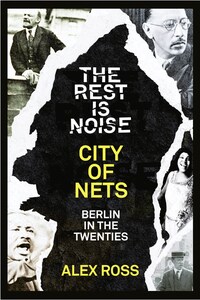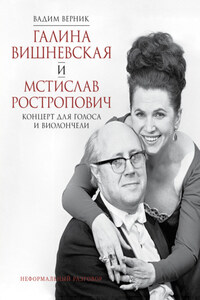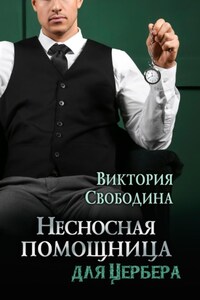CITY OF NETS
Berlin in the Twenties
One day in 1932, during the last months of Germany’s first attempt at democracy, Klaus Mann, Thomas Mann’s son, walked into a room and saw the corpse of the young actor Ricki Hallgarten, his friend and sometime lover. Hallgarten had shot himself through the heart, splattering blood on the wall. Klaus wrote, “The blood stains looked like the scattered fragments of a mysterious pattern—a last message, a warning, the writing on the wall.” That phrase, from the book of Daniel, became the leitmotif of Klaus Mann’s recollections of Germany in the 1920s, and, lest anyone miss the allusion, he went on to quote the biblical text itself: “MENE, MENE, TEKEL, UPHARSIN … God hath numbered thy kingdom … Thou art weighed in the balance, and art found wanting … Thy kingdom is divided.”
The Weimar Republic, as embodied in the culture of Berlin, invites melodrama. Every violent act or image seems to foreshadow the catastrophe to come. But it is too easy to write the story of German culture from 1918 to 1933 as the prelude to the next chapter. Berlin was a city of possibilities, of myriad outcomes, glowing with promise as well as threat. It played host to Communists, Nazis, Social Democrats, nationalists, New Objectivists, Expressionists, Dadaists, and straggling Romantics. Its spirit spoke in the meeting of opposites. In the wake of the humiliation of defeat, Berlin shook off its imperial past and reinvented itself as the prototype of media-saturated urban cultures to come—the first all-night city, the city without shame.
The young composers of Berlin—among them Kurt Weill, Paul Hindemith, Ernst Krenek, Hanns Eisler, and Stefan Wolpe—happily joined in the frenzy. Like their counterparts in Paris and New York, they picked up the rhythms of jazz, the noise of industry, the fashionable clutter of twenties life. They not only gained entry to popular culture but at times took control of it: Weill’s Threepenny Opera charmed Germany as Show Boat charmed America. Weill and company seemed on the verge of solving the ultimate mystery—how to break the divide between classical music and modern society. “Music is no longer a matter of the few,” Weill proclaimed in 1928. “The musicians of today have made this sentence their own. Their music, therefore, is simpler, clearer, and more transparent … Once musicians obtained everything they had imagined in their most daring dreams, they started again from scratch.”
Historians of Weimar debate whether German democracy was preordained to fail, or whether Hitler’s rise to power was a freak event. Music historians face a similar problem. Was Weimar a kind of fever dream, its arts programs destined to fall victim to the vagaries of commercial culture? Or might Weimar have given artists a permanent safe haven? As so often, the pessimists seem to have the force of history behind them. Schoenberg, who lived in Berlin from 1926 on, warned his colleagues against a futile chase after popularity, and in this period he devised a new way of working—a “method of composing with twelve notes”—that would protect the serious composer from vulgarity.
Back in Vienna, Alban Berg went his own way; his second opera, the opulent and terrifying Lulu, reconciled his teacher’s latest ideas with Weimar rhythms and Romantic chords. Wozzeck conquered Berlin in 1925; in an alternate universe, Lulu might have had the same reception. But Berg did not live to finish it, and by the time of his death, in 1935, Klaus Mann’s “writing on the wall” had become reality.
Ministry of Enlightenment
When Kaiser Wilhelm II abdicated his throne on November 9, 1918, Germany fell into a political disorder from which it never fully recovered. Leaders of the Social Democratic Party proclaimed a republic from the windows of the Reichstag. Karl Liebknecht hailed a Communist revolution while standing on the steps of the Royal Palace.
Kurt Weill, an eighteen-year-old student at the Hochschule für Musik, was in the streets that day; he heard Liebknecht’s speech and watched the skirmishes around the Reichstag. “I’ve had indescribable experiences the last few days,” he wrote to his parents. What he saw on the ground led him to make a perceptive comment, which historians of the Weimar period have confirmed: the moderate elements lacked power and influence, so the extremes of the left and the right were setting the tone and the agenda. This was an ominous note on which to inaugurate a republic.








